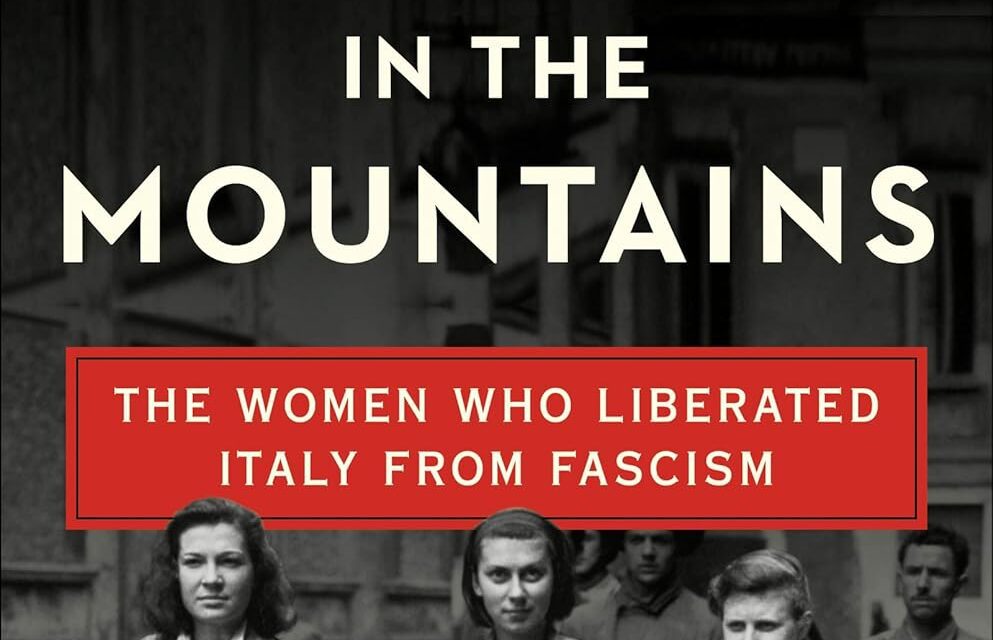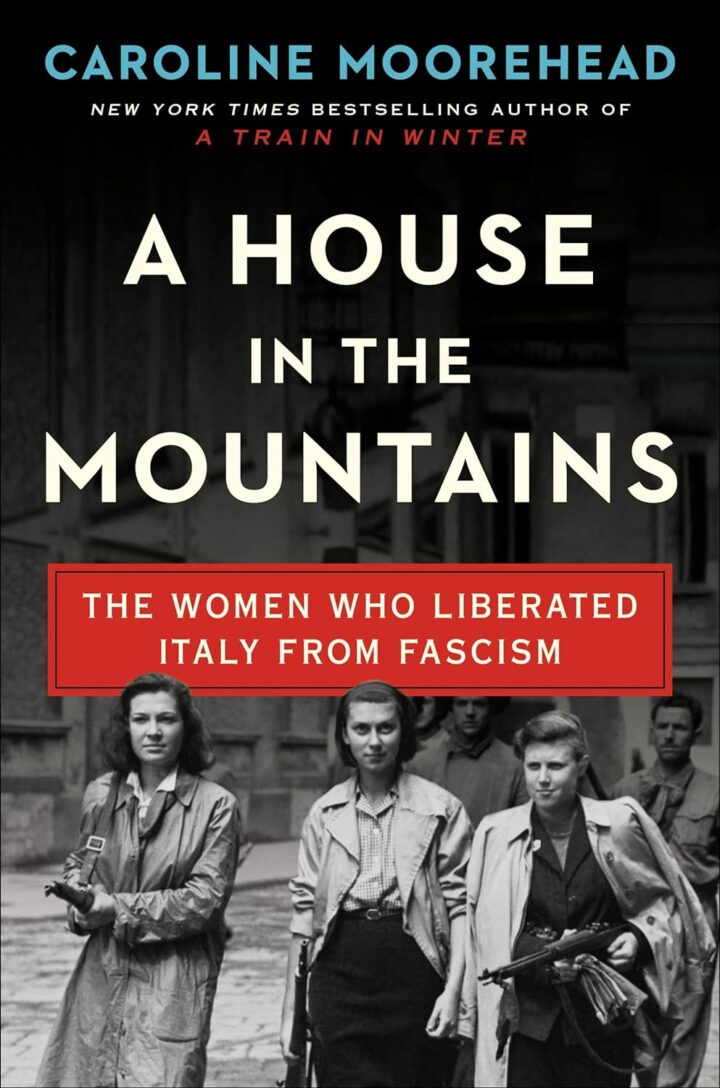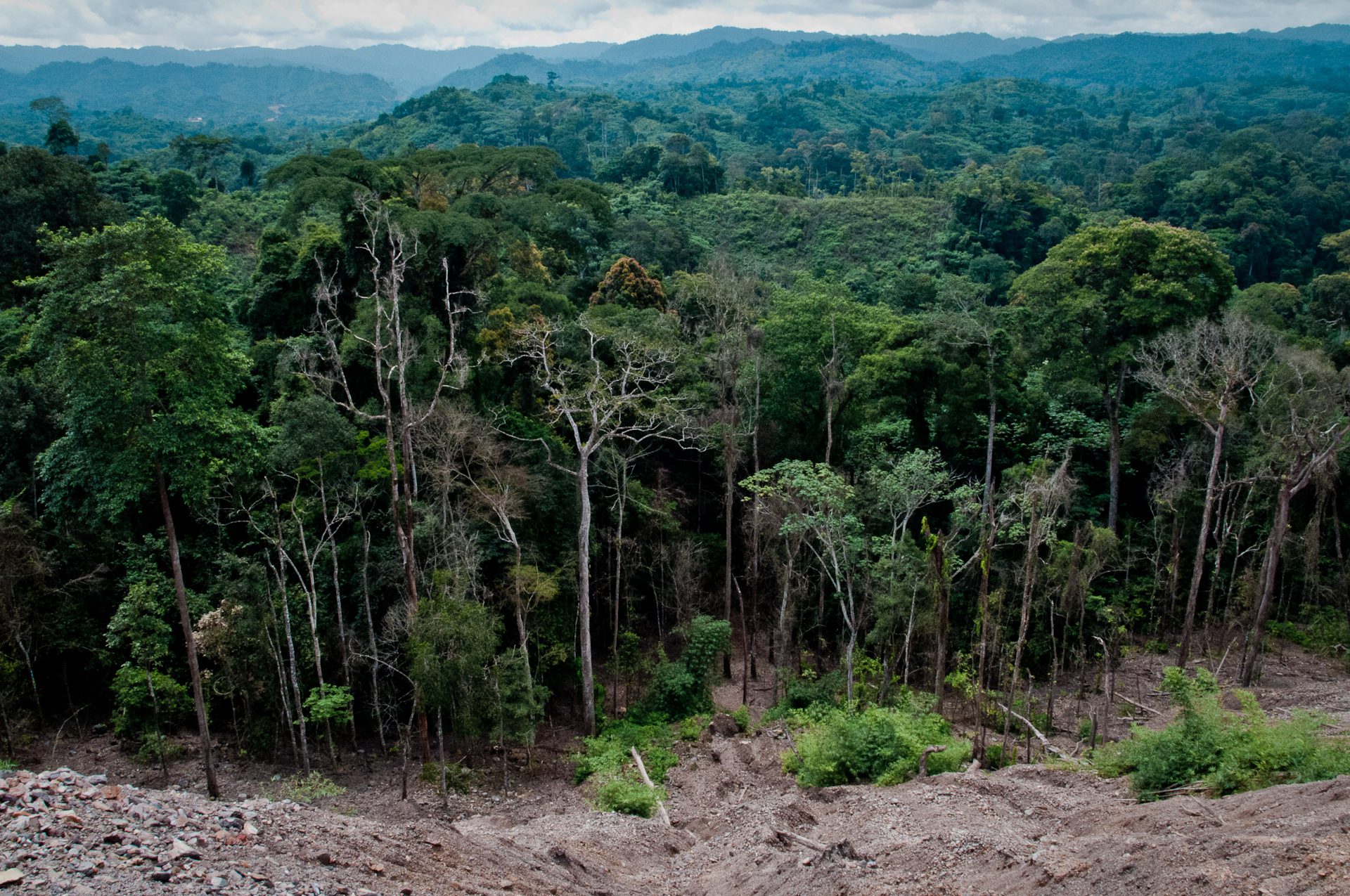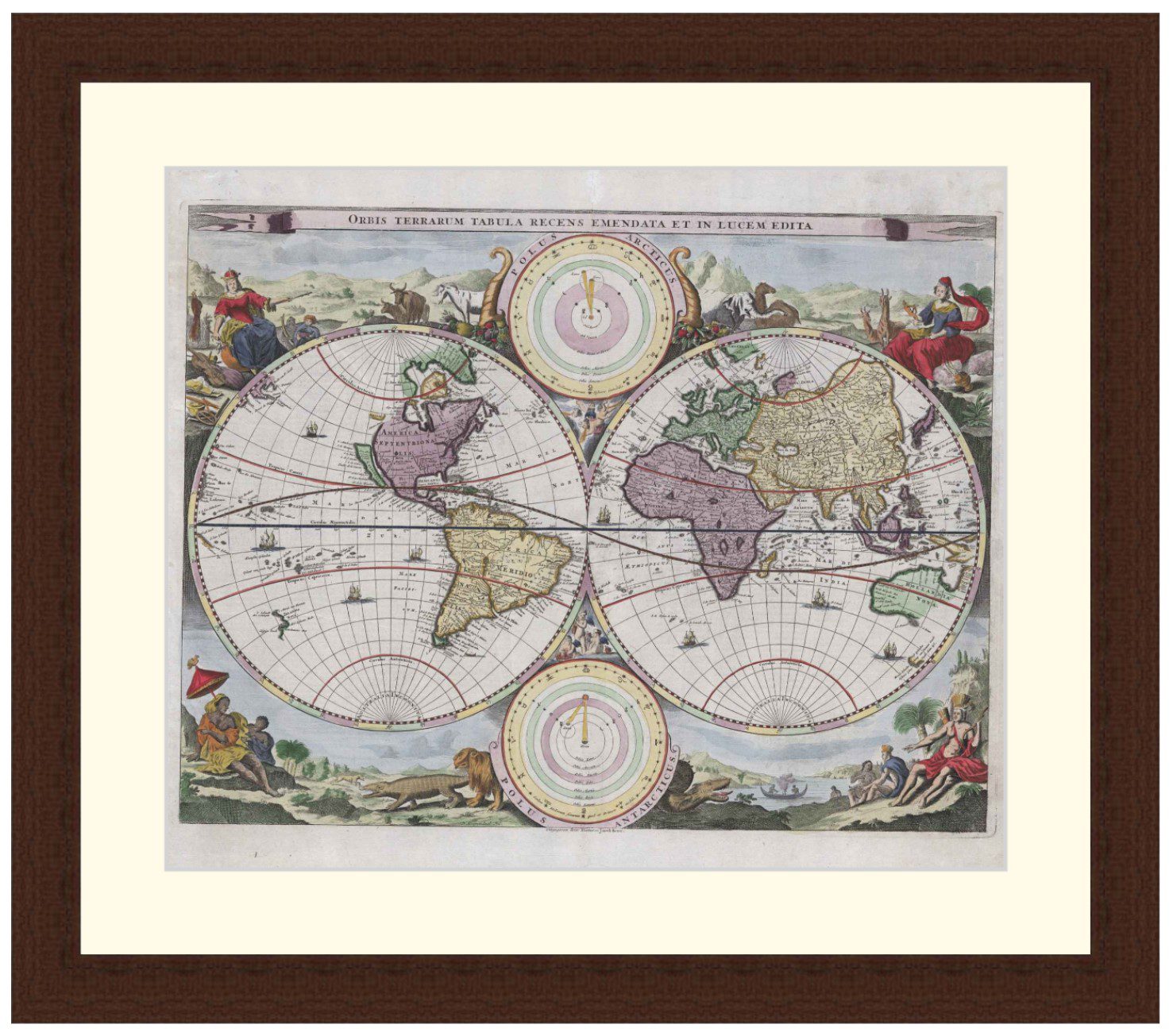Reading time: 2 minutes
A House in the Mountains: The Women Who Liberated Italy from Fascism by Caroline Moorehead
The acclaimed author of A Train in Winter returns with the “moving finale” (The Economist) of her Resistance Quartet—the powerful and inspiring true story of the women of the partisan resistance who fought against Italy’s fascist regime during World War II.
In the late summer of 1943, when Italy broke with the Germans and joined the Allies after suffering catastrophic military losses, an Italian Resistance was born. Four young Piedmontese women—Ada, Frida, Silvia and Bianca—living secretly in the mountains surrounding Turin, risked their lives to overthrow Italy’s authoritarian government. They were among the thousands of Italians who joined the Partisan effort to help the Allies liberate their country from the German invaders and their Fascist collaborators. What made this partisan war all the more extraordinary was the number of women—like this brave quartet—who swelled its ranks.
The bloody civil war that ensued pitted neighbor against neighbor, and revealed the best and worst in Italian society. The courage shown by the partisans was exemplary, and eventually bound them together into a coherent fighting force. But the death rattle of Mussolini’s two decades of Fascist rule—with its corruption, greed, and anti-Semitism—was unrelentingly violent and brutal.
Drawing on a rich cache of previously untranslated sources, prize-winning historian Caroline Moorehead illuminates the experiences of Ada, Frida, Silvia, and Bianca to tell the little-known story of the women of the Italian partisan movement fighting for freedom against fascism in all its forms, while Europe collapsed in smoldering ruins around them.
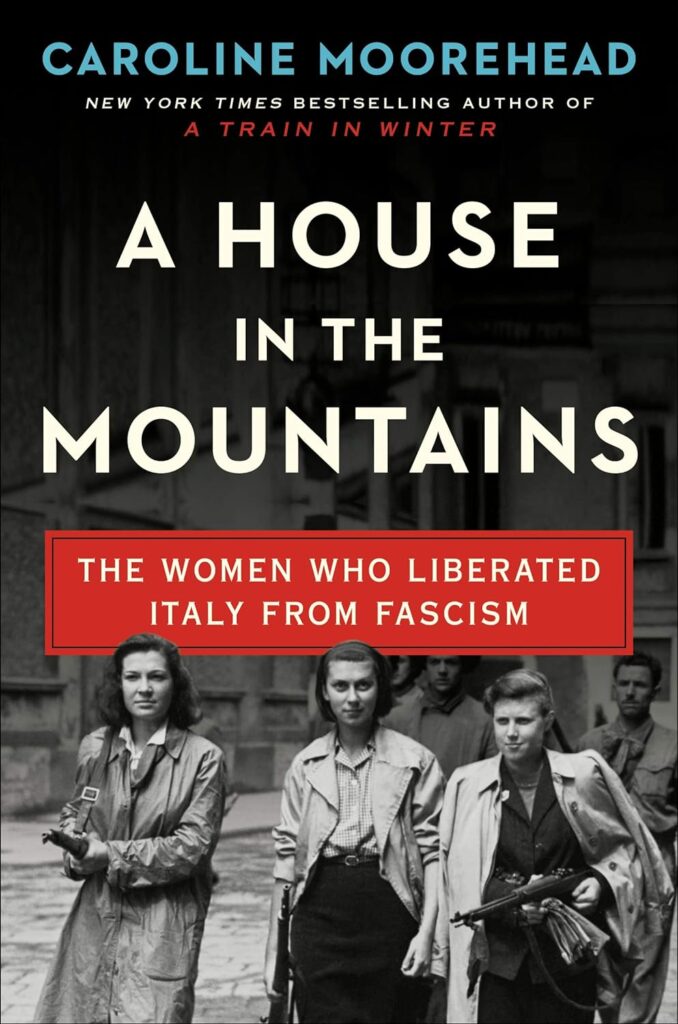
A Spectator Book of the Year
“Dramatic, heartbreaking and sweeping in scope.”
Wall Street Journal
“Moorehead paints a wonderfully vivid and moving portrait of the women of the Italian Resistance…an excellent book… She depicts a tragic fate that is timeless, of dreams forged in adversity, shattered by collisions with practical politics“
Sunday Times
“The moving finale of a quartet of books on resistance to fascism… Moorehead conveys the terror with understated power; she is equally good at conjuring the blurred morality of civil conflict…[and] the valleys and wild flowers in technicolour detail“
Economist
“Brilliantly and subtly told… The narrative is told with such verve that I frequently had goosebumps: the men and women known from much drier history books come alive… a riveting read“
The Guardian
“A sensitive and perceptive book founded on an appreciation of the role women play in any society, at any times. It is sober and serious, but still an easy read… Moorehead is not afraid to show how these women used their femininity to become more effective partisans“
The Times
“This brilliant book restores women to the heart of the Italian resistance story, making clear that they performed all the same activities as the men, while facing precisely the same dangers… This, at last, is their powerful story “
Spectator
“A House in the Mountains is a page-turner… This book is to be welcomed as a highly readable story in its own right, and as an accessible introduction to the role of women in the Resistenza”
BBC History
“Moorehead skilfully weaves…threads of individual stories together to create a web of interconnected lives… broad narrative is dotted with flashes of detail; the colour of a piece of clothing, the wording of a letter… Moorehead captures a sense of hope and vitality among the women of the Resistance, fighting with courage and determination for a future they believed in“
Scotland on Sunday
“In the best book she has so far written, Moorehead corrects this imbalance with a narrative whose coherence perfectly matches its author’s admiration for her subjects’ redemptive idealism… Moorehead needs to be read by Italians themselves. Over here, meanwhile, she deserves every prize going“
Jonathan Keates, Literary Review
“A deeply-researched, fast-paced account of the Italian Resistance, a story not widely known to the general reader “
History of War
A House in the Mountains: The Women Who Liberated Italy from Fascism – Book
By Caroline Moorehead The acclaimed author of A Train in Winter returns with the “moving finale” (The Economist) of her Resistance Quartet—the powerful and inspiring true story of the women of the partisan resistance who fought against Italy’s fascist regime during World War II. In the late summer of 1943, when Italy broke with the…
Only 3 left in stock
Articles you may also like

The first photograph of the entire globe: 50 years on, Blue Marble still inspires
Reading time: 6 minutes
December 7 marks the 50-year anniversary of the Blue Marble photograph. The crew of NASA’s Apollo 17 spacecraft – the last manned mission to the Moon – took a photograph of Earth and changed the way we visualised our planet forever. Taken with a Hasselblad film camera, it was the first photograph taken of the whole round Earth and is believed to be the most reproduced image of all time. Up until this point, our view of ourselves had been disconnected and fragmented: there was no way to visualise the planet in its entirety.

10 things every politician should know about history
Reading time: 5 minutes
The federal Education Minister, Alan Tudge, has announced a major edit of the draft history curriculum by the Australian Curriculum, Assessment and Reporting Authority (ACARA) as part of an effort to lift educational standards. “Ultimately, students should leave school with a love of country and a sense of optimism and hope that we live in the greatest country on Earth and that the future is bright,” he said.
The text of this article was commissioned by History Guild as part of our work to improve historical literacy. If you would like to reproduce it please get in touch via this form.

